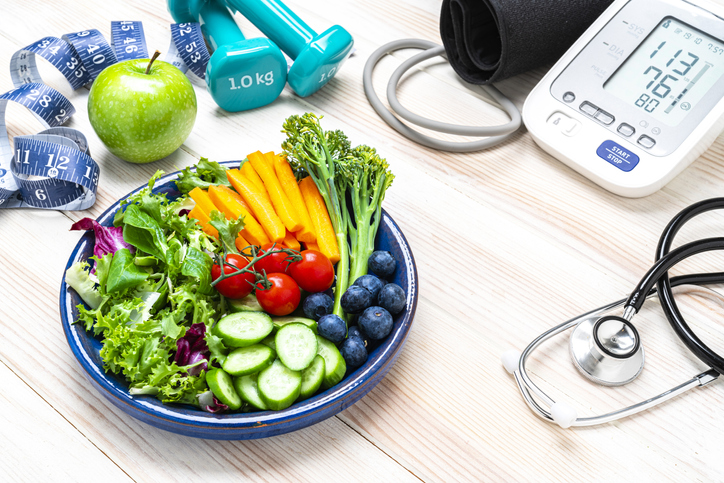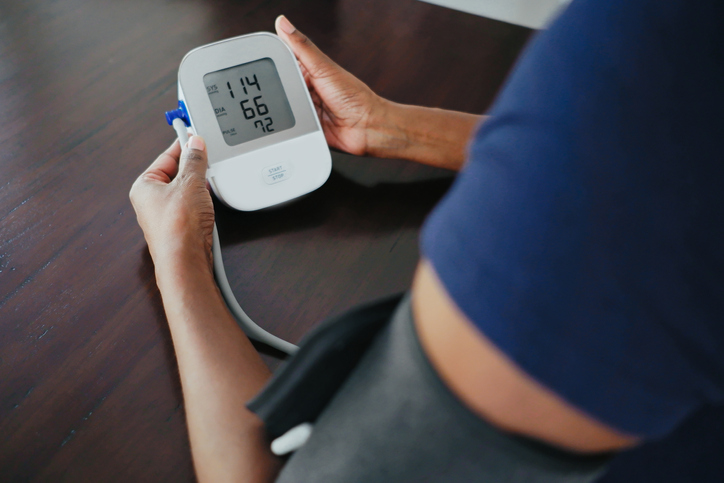Two New Reasons to Check Your Blood Pressure!

If you haven’t checked your blood pressure recently – or if you’ve never checked it – there are two new studies on hypertension that may convince you to do so sooner rather than later. In my view, they give new urgency to monitoring and managing your blood pressure.
But before discussing them, I want to remind you why being educated about your blood pressure is so important to your health. The blood circulating in your body exerts force against the walls of your arteries and veins. Over time, too much force can damage blood vessels which, in turn, can increase your risk for heart attacks, strokes, vision loss, kidney disease, and sexual dysfunction.
What is truly scary is that high blood pressure typically does not cause any symptoms, which is why it is also known as the “silent killer.” And, almost half of all American adults have it – many without even knowing they do.

Your Medication Can Increase Your Blood Pressure
The first study, published in the journal JAMA Internal Medicine, found that almost 20 percent of people with high blood pressure may unknowingly be taking a medication for another medical condition that can increase their blood pressure. Increasing the risk is that those taking these medications have a higher probability of having uncontrolled hypertension if they were not taking medication to lower their blood pressure. And those taking hypertension medications under a doctor’s care are more likely to need higher doses than originally prescribed.
The researchers suggest that many people may be taking these medications that increase blood pressure without even being aware of it – and they may have been doing so for quite some time. This is why it is so important to always let your doctor know about all medications and supplements you may be taking – both prescription and over the counter – and to ask if any of them could affect your blood pressure.
You don’t want to be in a situation where all your work to manage your blood pressure through diet, lifestyle and even medications is undone by medications you are taking to manage something else. This is especially the case since there most likely are alternative medications that you could take that would not impact your blood pressure.
Some medications and substances – many of which you probably have around the house – that can increase blood pressure include:
- Decongestants such as pseudoephedrine and phenylephrine
- Antidepressants such as monoamine oxidase inhibitors, tricyclic antidepressants, and fluoxetine
- Prescription-strength non-steroidal anti-inflammatory drugs (also known as NSAIDs) such as ibuprofen and naproxen
- Alcohol, caffeine (including energy drinks), black licorice, nicotine
- Corticosteroids and mineralocorticoids
- Immunosuppressants such as cyclosporine
- Weight-loss medications
- Stimulants such as methylphenidate
- Biological therapies such as imatinib, pazopanib and bevacizumab
- Hormonal medications such as birth control pills
- Illegal drugs such as MDMA (ecstasy) and cocaine
- Herbal products such as ephedra, ginseng, and guarana
- Antacids that are high in sodium
The Pandemic
The second, published in the medical journal Circulation, suggests that as a result of living in a pandemic society for almost the past two years, our collective average blood pressure as a nation has increased.
Men and women in a study, which evaluated the blood pressure of over 450,000 people from 2018-2020, both had increases in blood pressure during the pandemic. Women had larger increases in both systolic (the pressure when your heart beats) and diastolic (the pressure when your heart is at rest) measures. The average age of participants was 45.
What this may mean is that even if your blood pressure was in a healthy range before the pandemic, there is a good chance that it is now elevated and putting your health at risk. And the study continued to say that even small changes in average blood pressure in the population can impact the number of strokes and heart attacks.
The study did indicate that the causes of these increases in blood pressure are not clear. They may be attributable to people exercising less during the pandemic, higher stress levels, and increased unhealthy lifestyle choices such as consuming more alcohol.
How to be proactive

The first and most important thing you can do is get your blood pressure checked regularly. This is the only way to know if this “silent killer” is putting your health at risk and the only way to know if the steps you are taking to manage it are working. There are many excellent at-home blood pressure monitoring products on the market that can help you keep track of your blood pressure in between doctor visits. Many of these work with an app on your smart phone and keep a record of your readings that you can later share with your doctor.
The second, and equally important in my opinion, is making lifestyle choices that support having a healthy blood pressure. These include:
- Maintaining a healthy weight – in addition to all its other benefits, losing weight has been linked with lower blood pressure
- Getting enough exercise
- Eating a healthy diet that includes plenty of fruit, vegetables, berries, nuts, seeds, salmon and other fatty fish, Greek yogurt, and legumes
- Drinking plenty of water and staying hydrated
- Limiting the amount of salt you consume – and being aware of “hidden” salt in many convenience foods, canned soups and vegetables, cottage cheese, lunch meats, vegetable juice and pickles
- Reducing the amount of added sugar, unhealthy fats and “nutrient void” calories in your diet
Also test your body for minerals, vitamins, and other deficiencies since zinc, potassium, calcium, vitamin D, vitamin E, vitamin C, folate, and magnesium, for example, support healthy blood pressure.
Enjoy your healthy life!
Disclaimer: This article is not intended to provide medical advice. Please consult with your doctor or another competent healthcare practitioner to get specific medical advice for your situation.
The pH professional health care team includes recognized experts from a variety of health care and related disciplines, including physicians, attorneys, nutritionists, nurses, and certified fitness instructors. This team also includes the members of the pH Medical Advisory Board, which constantly monitors all pH programs, products, and services. To learn more about the pH Medical Advisory Board, click here.







